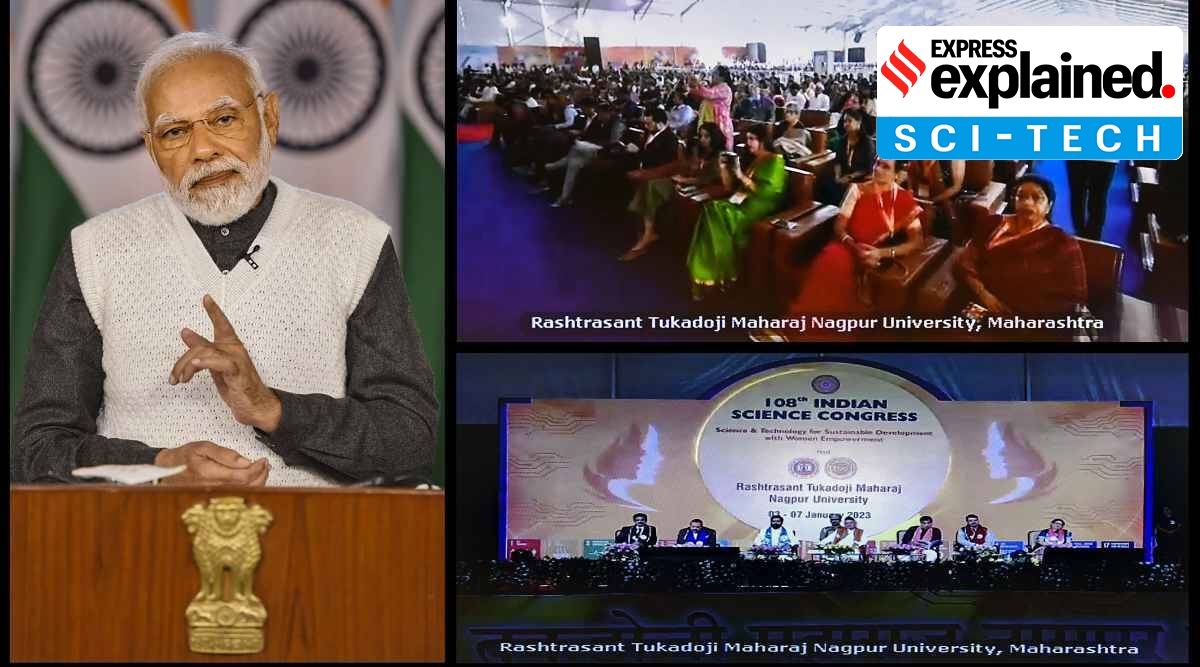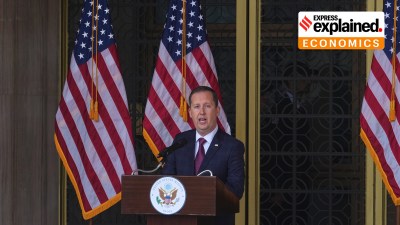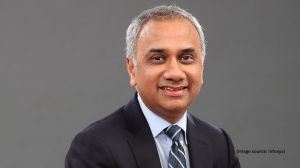Science Congress: Why its glory days are over
Science Congress, the country’s largest gathering of scientists and students, is often the PM’s first public engagement of the new year. But the institution is at a crossroads, and in urgent need of reforms.
 Prime Minister Narendra Modi addresses the 108th Indian Science Congress on the theme 'Science and Technology for Sustainable Development with Women Empowerment', via video conferencing, in New Delhi, Tuesday, Jan. 3, 2023. (PTI Photo)
Prime Minister Narendra Modi addresses the 108th Indian Science Congress on the theme 'Science and Technology for Sustainable Development with Women Empowerment', via video conferencing, in New Delhi, Tuesday, Jan. 3, 2023. (PTI Photo) After a two-year Covid-enforced absence, the Indian Science Congress is back, with its 108th edition getting underway in Nagpur on Tuesday. The largest gathering of scientists and students in the country, the Science Congress is an annual five-day event from January 3 to 7, a permanent fixture on the Prime Minister’s calendar, and usually his/her first public engagement in the new year.
As is customary, Prime Minister Narendra Modi inaugurated the event. He reiterated his call for harnessing scientific knowledge for societal needs and making India self-reliant.
“Scientific works should be such which will fulfill the needs of India and will give momentum to 17-18 per cent of the world’s humanity. And its effect will be on the entire humanity. Therefore, we should work on such issues which are important for the entire humanity. For example, if we take the issue of energy. India’s energy needs are going to grow continuously. In such a situation, if the scientific community of India makes innovations related to energy requirements, then it will be of great benefit to the country,” Modi said. He also made a mention of other priority areas like disease control, management of natural disasters, space applications, waste management, new materials, and semiconductor research.
 PM Modi addresses the 108th Indian Science Congress by video link Tuesday. (PTI)
PM Modi addresses the 108th Indian Science Congress by video link Tuesday. (PTI)
With a history dating back to 1914, the Science Congress is a one-of-its-kind event in the country, bringing together scientists and researchers not just from the premier institutions and laboratories but also science teachers and professors from colleges and universities, and offering a platform for their interaction with students and the general public on matters related to science. It has had a glorious past, with the who’s who of Indian science not just participating but also serving as organisers.
The decline of Science Congress
But the glory days of the Science Congress are clearly over. In more recent times, the event has attracted attention for all the wrong reasons — lack of serious discussion, the promotion of pseudoscience, outlandish claims by random speakers, and the absence of useful outcomes. The Science Congress hits the headlines more for the controversies it generates than for scientific discussions.
Most credible scientists now avoid the event. Leading scientific institutions and laboratories only have a token presence, if at all. Most attendees are from colleges and universities with limited scientific credentials. The papers presented or the talks delivered hardly reflect the latest advancements in science.
So much so that several top scientists have, in the past few years, advocated the discontinuation of the event, or at least withdrawal of government support. There has been talk of reforms for the last two decades, but nothing has changed substantively.
Government’s dilemma
The event is organized by the Indian Science Congress Association (ISCA), an independent body functioning with the support of the Department of Science and Technology (DST) in the central government. The salaries of the permanent staff of ISCA are paid by the DST. For organising the Science Congress, the government provides an annual grant, which has been increased to Rs 5 crore from this year — it used to be Rs 3 crore earlier. Several other government agencies, like the Science and Education Research Board, also make financial contributions because the event is seen as an effort to promote science. Additional resources are raised through sponsorship and fees for renting out exhibition spaces.
The government has no role to play in the selection of the panelists or speakers, the papers to be presented, or the subjects to be discussed. But because of the support it provides, and also due to the presence of the Prime Minister, other ministers, and officials, the event gets closely associated with the government. As such, every time the event lands in a controversy — which has been pretty frequent in the last few years — the government is blamed. The event is also presented as a showcase scientific forum in India, and that does not often convey a very impressive picture of Indian science internationally.
Because of all these reasons, there has been a strong sentiment within the government in favour of reviewing its association with the Science Congress. In fact, way back in 2008, then Science Minister Kapil Sibal was said to be so upset with the goings-on at the Science Congress that he had explored the possibility of discontinuing government support until some reforms were introduced.
However, governments have been extremely reluctant to go ahead on this path due to the fear of being dubbed anti-science. The event attracts a large number of students from different corners of the country, most of them on expenses that are borne by the ISCA, and this is their only opportunity to meet and interact with some leading scientists, or get exposure to the developments in the world of science.
Even then, the government has scaled down its involvement in the Science Congress. The Prime Minister no longer presents the awards at the inaugural plenary — some of the awardees in the past were found to have dubious credentials — and the number of people who share the stage with the Prime Minister at the inauguration has been significantly reduced. This year, Prime Minister Modi chose not to attend the event in person, and addressed the meeting through a video link, even when there were no compelling Covid-19 guidelines to be followed.
Scientists say that a better way to reform the Science Congress could be to develop an alternative forum where top Indian and global scientists could be invited to talk about the latest developments in the scientific world and their impacts on our lives. Such events are already being organised in many countries, and are extremely popular. These also serve as platforms to get youngsters and the general public excited about science, and help in the cultivation of scientific temper, which is one of the main purposes of the Science Congress as well.
More than anything else, such an alternative forum could further the cause of making Indian science more competitive, and could also lead to an increase in collaborative research with leading scientific groups and institutions.
- 01
- 02
- 03
- 04
- 05






































